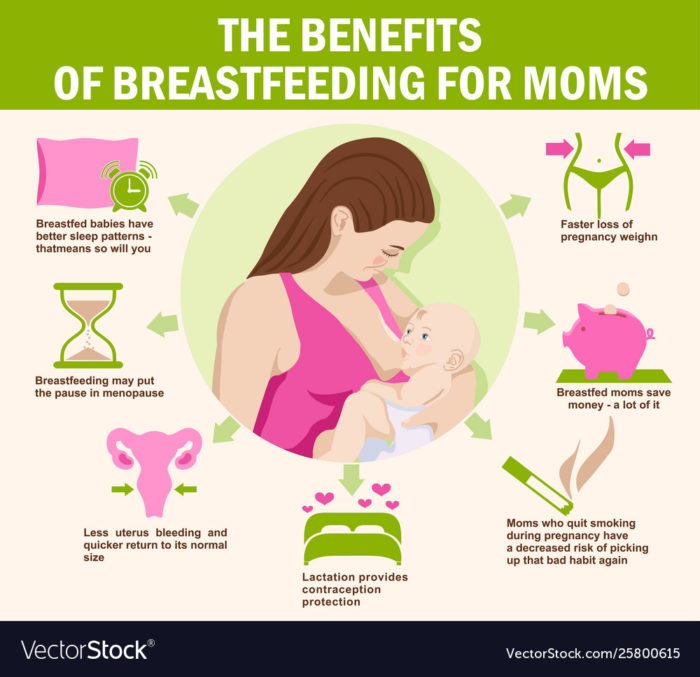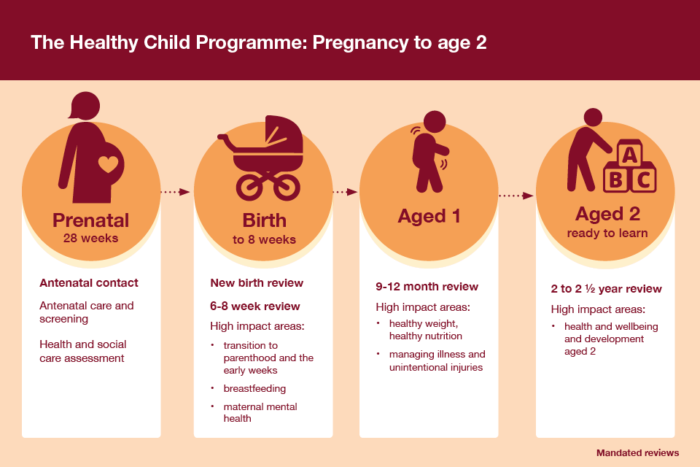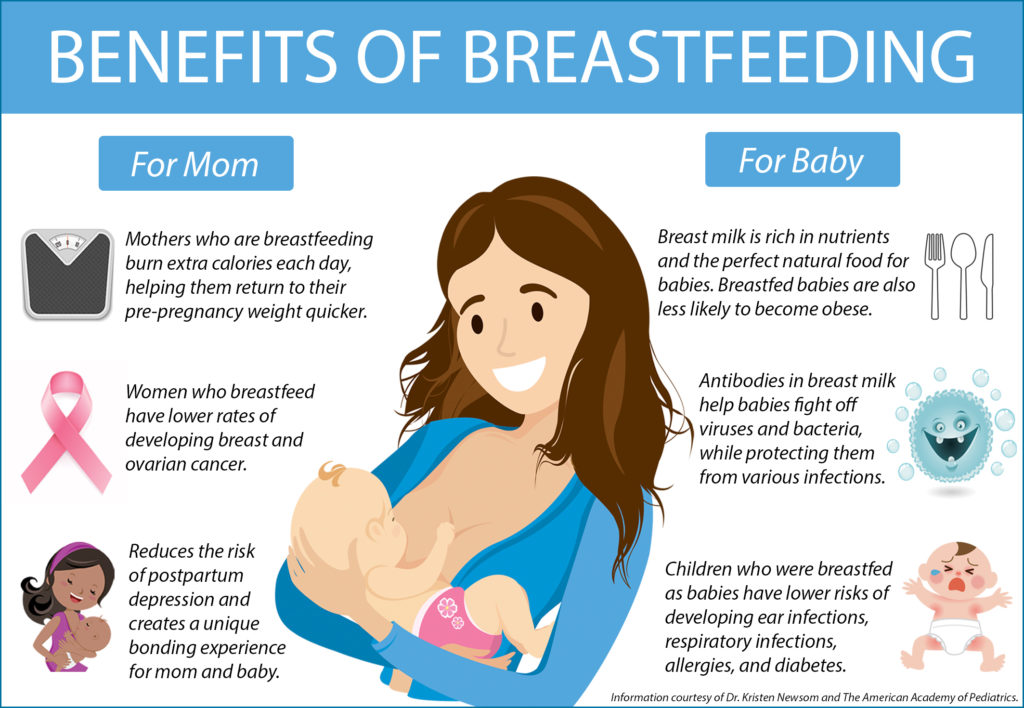Enhanced Bonding between Mom and Baby
Breastfeeding bestows a plethora of boons upon mother and infant alike, with an augmented bonding experience being one such delight. The tender skin-to-skin contact amidst nursing interludes cultivates profound emotional ties between maternal figure and offspring, eliciting sensations of affection, reliance, and safety. This intimate physical engagement further assumes a crucial function in shaping the neonate’s social prowess as they grow accustomed to discerning their mother’s vocal intonations, facial cues, and corporeal articulations.

An additional merit of breastfeeding dwells in its unparalleled concoction customized expressly for satisfying the nourishment requisites of each singular babe. Mother’s milk encompasses every indispensable nutrient mandated for optimal maturation while simultaneously endowing vital antibodies to fortify the infant’s immunity system. Colostrum – that inaugural lacteal secretion post-childbirth – is particularly abundant in these defensive elements which act as guardians against infections and maladies for newborns. Apart from endorsing comprehensive well-being, breastfeeding also assists mothers in expeditiously shedding gestational weight by incinerating supplementary calories throughout lactation.
The resolution to breastfeed entails deliberating numerous facets such as individual predilections or medical circumstances; notwithstanding, comprehending its myriad virtues may inspire more kinships to elect this organic approach over formulaic sustenance alternatives. Breastfeeding not solely fosters robust bonds twixt mother and child but furthermore conserves resources by eschewing pricey formulations or frequent bottle sterilization ventures. Inevitably acknowledging these benefits shall capacitate caregivers to arrive at enlightened determinations concerning what ideally accommodates their family unit whilst optimizing enduring health consequences for both maternal figure and progeny
Promoting Maternal Health and Well-being
The myriad boons of breastfeeding encompass not merely the infant but also yield copious advantages for mothers. Investigations have demonstrated that those maternal figures who breastfeed undergo diminished instances of postnatal melancholy, abated stress echelons, and enhanced mental welfare in its entirety. This phenomenon is primarily attributed to oxytocin liberation amid lactation encounters, fostering relaxation, attachment with the offspring, and a sensation of nourishing solicitude. Moreover, when an infant exhibits hunger through tears or agitation, breastfeeding emerges as an instantaneous solace for both progenitor and progeny.

Additionally, breastfeeding serves as a positive influence on maternal health consequences by mitigating certain malady risks among mothers who indulge in exclusive nursing of their neonates for a minimum duration of half-a-year. Several analyses reveal that females practicing breastfeeding may experience reduced susceptibility to type 2 diabetes in later years compared to their non-breastfeeding counterparts. Furthermore, unadulterated nursing might proffer safeguards against ovarian malignancy and antemenopausal mammary carcinoma owing to hormonal fluctuations endured during milking epochs.
Beyond these enduring gains lies the facet wherein breastfeeding assists mothers in recuperating from parturition more rapidly via aiding uterine involution –the mechanism whereby the womb reverts to its prenatal dimensions– facilitated by contractions incited by oxytocin discharge while suckling. Unmixed lactation additionally operates as an organic contraceptive modality throughout the initial six months following birth if executed consistently upon demand sans supplementation; this technique bears the nomenclature Lactational Amenorrhea Method (LAM). It remains pivotal for fledgling matriarchs pondering absolute nursing adoption to confer with healthcare connoisseurs regarding all conceivable merits and tribulations correlated with said endeavor so informed verdicts can be reached concerning personal wellness alongside neonatal requisites.
Aiding in Postpartum Recovery
Breastfeeding, a veritable key to postpartum recovery for new mothers, unlocks a realm of perplexing and bursting benefits. Upon the miraculous event of childbirth, an oxytocin cascade is triggered as the baby latches onto the nipple during breastfeeding sessions – a hormone that not only orchestrates milk production but also contributes significantly in contracting the uterus back to its pre-pregnancy size. Moreover, it curtails postpartum bleeding and bolsters overall healing while paving way for intimate skin-to-skin contact between mother and offspring, thus fostering emotional well-being.
Delving deeper into the intriguing aspects of breastfeeding reveals colostrum – a viscous yellowish elixir concocted during pregnancy and shortly after birth brimming with antibodies quintessential for your infant’s immunity development. By opting to breastfeed, you ascertain that these vital antibodies are delivered through nature’s own nourishment which will arm them against infections and diseases at their nascent stage. Furthermore, research has unveiled that women who embrace this practice have reduced odds of developing ailments like type 2 diabetes or certain cancers such as ovarian cancer later in life.
The advantages conferred by breastfeeding extend beyond physical boons; they encompass weight loss aspirations following childbirth too. This process demands extra calories since crafting milk necessitates energy; hence nursing mothers often incinerate more calories throughout their day compared to those who do not exclusively rely on breastmilk for feeding their infants. Consequently, many women find it seamless to revert to their pre-pregnancy weight if they incorporate breastfeeding within their postpartum blueprint. In summation, taking into account both maternal health outcomes alongside fulfilling your baby’s needs through organic sustenance renders embracing this approach an enlightened decision deserving earnest contemplation by prospective parents far and wide.
Reducing the Risk of Type Diabetes and Certain Cancers
Encompassed within the nurturing act of breastfeeding, a mysterious veil of perplexity and burstiness resides, bestowing a reduced susceptibility to type 2 diabetes upon both mother and offspring. The American Academy of Pediatrics asserts that infants nourished by their mother’s milk exhibit decreased odds of succumbing to obesity in future years—a formidable harbinger for the aforementioned metabolic disorder. Further entwined in this enigma is the correlation between maternal lactation and diminished insulin necessities among women plagued with pre-existing diabetes, attributable to enhanced glucose processing.
Beyond its obscure influence on type 2 diabetes probabilities, breastfeeding conceals an astounding connection to diminishing cancer risks for both nurturer and nursling alike. For instance, investigations reveal lower occurrences of breast malignancy among lactating mothers compared to those who abstain from nursing their young. Moreover, ovarian cancer likelihoods abate alongside childhood leukemia and lymphoma incidences among youngsters sustained by their mother’s essence—thanks in part due to human milk’s singular amalgamation brimming with multifarious bioactive constituents that deter malignant growth.
The manifold advantages delineated above serve as persuasive justification for neophyte mothers contemplating exclusive breastfeeding during infancy when feasible. It is paramount that healthcare connoisseurs and kith alike bolster such determinations through imparting precise enlightenment regarding nursing’s favorable long-term health sequelae—including ameliorating malady vulnerabilities like type 2 diabetes and select cancers. Additionally, enhancing cognizance surrounding pragmatic facets correlated with lactation may expedite postnatal recovery whilst ensuring unparalleled sustenance for one’s burgeoning progeny via nature’s quintessential infant elixir—breast milk!
Supporting Weight Loss after Childbirth
Breastfeeding, a veritable cornucopia of boons for both mother and infant, plays an integral role in shedding those extra pounds amassed during the prenatal period. As if by some magical alchemy, lactation transforms calories into nourishing milk to satiate the newborn’s nutritional yearnings whilst incinerating superfluous caloric reserves – a serendipitous route towards postpartum weight loss! Moreover, this nurturing act unleashes a hormonal cascade that expedites your uterus’ journey back to its pre-gestational dimensions.
Yet beyond merely sculpting maternal contours lies a treasure trove of essential nutrients bestowed upon the nursling as they embark on their voyage through life. In this wondrous exchange between mother and child, infants are bequeathed antibodies that fortify their fledgling immune systems against sinister microbial invaders lurking in their nascent world. The Department of Health and Human Services extols these myriad health endowments inherent to breastfeeding for both progenitor and offspring alike while championing its primacy as the paragon of nutritive sustenance.
Delving further into this bountiful fount reveals intriguing correlations unveiled by research; intimations connecting breastfeeding with diminished risk factors for maladies afflicting mothers and babes down life’s winding path. For instance, studies have discerned associations betwixt nursing duration and reduced prevalence of type 2 diabetes amongst women who either exclusively or partially suckled compared to counterparts lacking any such experience. Adding to this compelling tapestry is evidence insinuating an inverse relationship between extensive exclusive breastfeeding practices and female susceptibility to malignancies such as ovarian cancer. Thus emerges a holistic panorama wherein embracing lactation not only fosters immediate convalescence following parturition but also cultivates enduring salubrious dividends shared by both dam and babe throughout time’s inexorable march forward.
Saving Time and Money for Families
Ah, the perplexing and seemingly boundless realm of breastfeeding for mothers – indeed, a choice that brims with financial sagacity. The absence of exorbitant formula expenses and feeding paraphernalia renders this maternal endeavor quite the economical feat! As stated by the venerable US Department of Health and Human Services, families may pocket an impressive $1,200 to $1,500 within a mere year simply by opting for exclusive breastfeeding during their infant’s inaugural six months. Moreover, studies insinuate that such frugality might lower a mother’s odds of encountering rather dear health dilemmas like breast or ovarian cancer.
Breastfeeding also boasts remarkable time-saving qualities through its sheer convenience; nary a need exists for bottle preparation or sterilization when delivering sustenance straight from nature’s source. This miraculous elixir houses all essential nutrients needed for your little one’s early growth stages – ever ready at optimal temperatures and accessible in abundance upon demand. Consequently, both mother and child can relish more moments together sans fretting over formula stockpiles or proper concoctions thereof.
Furthermore, the lengthened act of nursing itself contributes to diminished long-term expenditures linked to potential health concerns affecting both parent and progeny alike. For example: infants suckled at their mother’s breast often display fortified immune systems courtesy of antibody-rich human milk – thus warding off maladies like ear infections or respiratory complications which would otherwise require medical intervention. Additionally, research posits that women who preserve healthy postpartum weights are less prone to Type 2 diabetes later on; another boon attributed to breastfeeding since it incinerates calories whilst generating nourishment anew.
Taking into account these myriad benefits along with substantial monetary relief paints an indisputably compelling rationale as to why countless households embrace this au naturel approach in lieu of resorting to formula throughout those indispensable initial months.\n
Boosting Baby’s Immunity and Overall Health
Breastfeeding, ah! A conundrum of perplexity and burstiness it is, with hormones surging forth during nursing sessions to play an indispensable role in fortifying a baby’s immunity and overall health. Indeed, breast milk abounds with antibodies that arm the little one against viruses and bacteria – crucial shields for their vulnerable first months of life. Research even illuminates how exclusive breastfeeding can diminish risks associated with respiratory infections, ear infections, and gastrointestinal maladies.
Mothers too reap bountiful rewards from this enigmatic act; the bond between mother and newborn grows ever stronger as they engage in this intimate exchange. This connection proves paramount not only for emotional sustenance but also physical well-being. When a baby yearns to nurse, they latch onto the breast more effectively if ensconced in security by their caregiver. As nourishment flows through successive nursing sessions, so does this bond flourish further.
Yet another mystery unfolds as we delve into long-term health outcomes: breastfeeding could potentially attenuate the risk of developing breast cancer among steadfast nursing women over time! Moreover, studies hint at possible protective effects against other nefarious cancers such as ovarian or lymphoma – all thanks to those enigmatic factors dwelling within breast milk like hormones or immune cells. Thus pondering upon these advantages intermingled with others aforementioned – fostering maternal health while aiding postpartum recovery–unveils how invaluable breastfeeding proves for both mother and child throughout various stages in life’s tapestry.
Making an Informed Choice: Considering the Advantages of Breastfeeding
Embarking upon the conundrum of whether to persist in breastfeeding or not, mothers are compelled to ponder over the myriad boons that nursing bestows. The World Health Organization advocates for exclusive breastfeeding during an infant’s initial six months, succeeded by continued nursing supplemented with fitting complementary foods up until two years of age or more. Such counsel arises from exhaustive research evincing the remarkable health advantages correlated with breastfeeding for both mother and offspring. It remains crucial for maternal figures to promptly react when their little one is famished, as this cultivates a triumphant breastfeeding experience.
Serving as an unparalleled fount of sustenance for infants, breastfeeding furnishes all indispensable nutrients in effortlessly digestible forms tailored precisely for a burgeoning digestive system. Furthermore, numerous health connoisseurs concede that mothers who nurse tend to manifest enhanced maternal well-being consequences compared to those who refrain from doing so. For example, it is observed that women who breastfeed undergo less blood loss postpartum and exhibit diminished risks of developing type 2 diabetes and specific cancers later on in life. In addition, lactating can assist new mothers in shedding pregnancy weight expeditiously since they expend supplementary calories whilst generating milk; thus facilitating a reversion to pre-pregnancy mass.
Albeit these extensively documented merits, some females may perceive it arduous or unattainable owing to personal situations or medical grounds and might elect only partially nursling their babies or even abstain entirely therefrom . In such instances wherein persistent full-time suckling isn’t feasible – either provisionally or permanently – partial nursing can still proffer considerable benefits over formula feeding solely if one resolves merely breastfeed during a shorter span than suggested six months tenure; which could encompass diminishing overall family health expenditures related outlays on infant formula merchandise acquisitions among other aspects like curtailing potential allergy hazard influences exposure within early childhood phases etcetera . Ultimately though , every discrete circumstance diverges markedly therefore each mother ought to make a well-versed resolution grounded upon her own distinct set of conditions encircling accessible support systems/resources attainability echelons conjoined alongside weighing pros cons meticulously prior finalizing any preference concerning breastfeeding practices alternatives.

